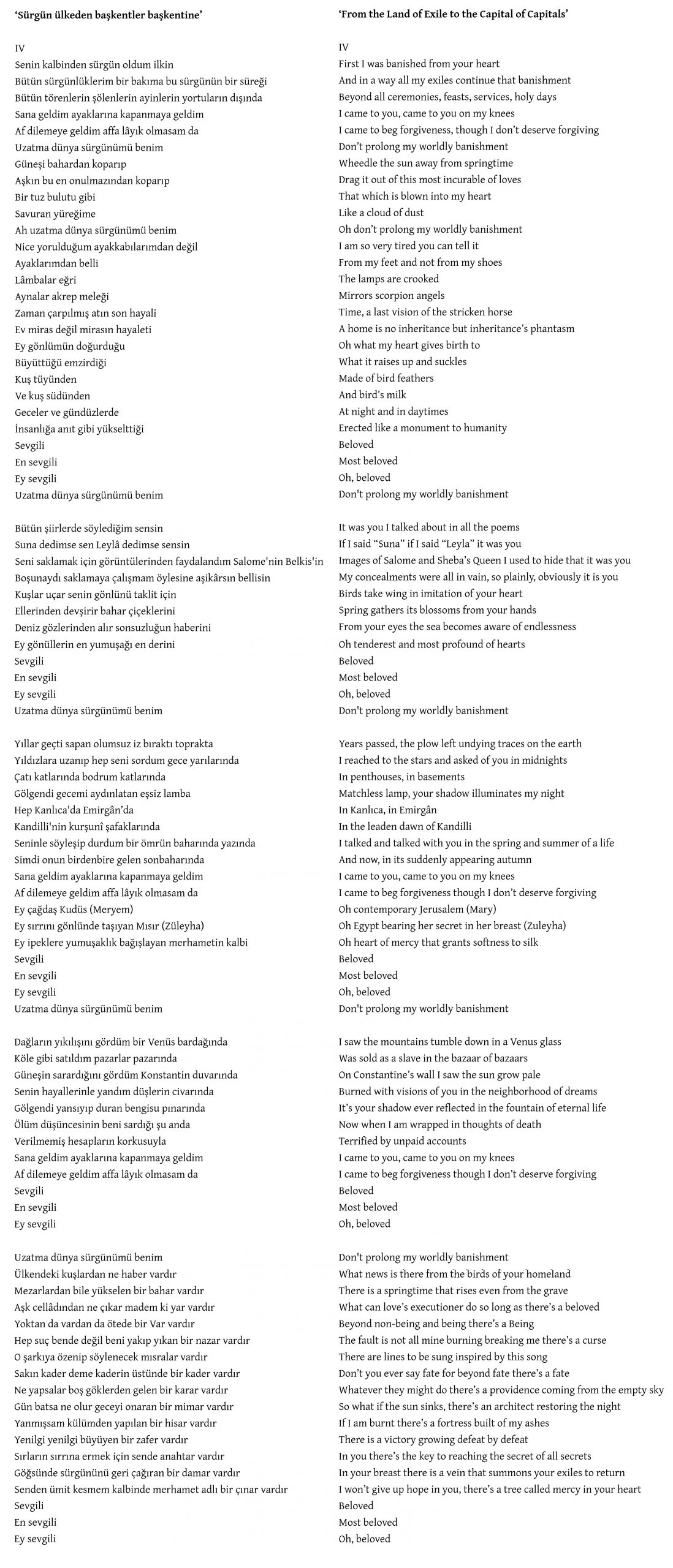Sezai Karakoç
(b. 1933)
Sezai Karakoç is a well-known figure of the Turkish literary scene since the 1950s. His poetic and political identities go hand in hand. He describes himself as a mystic: together with religion and Islamic civilisation, mysticism is one of the core concepts of his poetry and ideology. His poetry scrutinises the relationship between the poet and the artistic creation as well as the link between the artist and the Divine. He has always been in search of the Islamic poetic tradition. His search is not limited to the poetic realm: he also seeks to recreate an Islamic public and private life, so much so that he came up with his own terminology and heavily defends the ideology of “Resurrection of the old Islamic civilisation”. Thus, he was never just a literary figure but also a political and ideological one, and his poetry also involves this intertwining of art and ideology.
‘From the Land of Exile to the Capital of Capitals’
The poem is composed of four parts. The first two parts of the poem start with an invitation to the poetic universe of Ottoman classical poetry. This is the universe where the poet can redefine the meaning in harmony with his ideology. When the reader accepts the invitation, then the poet defines the actual situation of the poetic universe and in a sense describes what has been lost so far. The last part, the only one reproduced here, is a cry for the resurrection of the old regime. However, the cry of the poet is vain, as the old regime has vanished and the central meaning defined by it has been lost. Aware of it, the only option for the poet is unity with the One, as the current regime, or the life on earth, feels like nothing but exile. The poem is discussed by Neslihan Demirkol and Mehmet Kalpakı in their chapter ‘The New Image of the Beloved in the Old Mirror: Reflections on the Neoplatonic Tradition in Modern Turkish Poetry’ (see FoI, 438-40).

For searchable text page – click here
Source
Sezai Karakoç (2001), Tanzimat’tan Bugüne Edebiyatçılar Ansiklopedisi (Istanbul: Yapı Kredi Kültür Sanat Yayıncılık), 561-564; Sezai Karakoç (1995), Şiirler IV: Zamana Adanmış Sözler, (Istanbul: Diriliş Yayınları). English translation by Walter G. Andrews, from Kemal Sılay (ed.) (1996) An Anthology of Turkish Literature (Bloomington, Indiana, Indiana University Turkish Studies), 496-497.